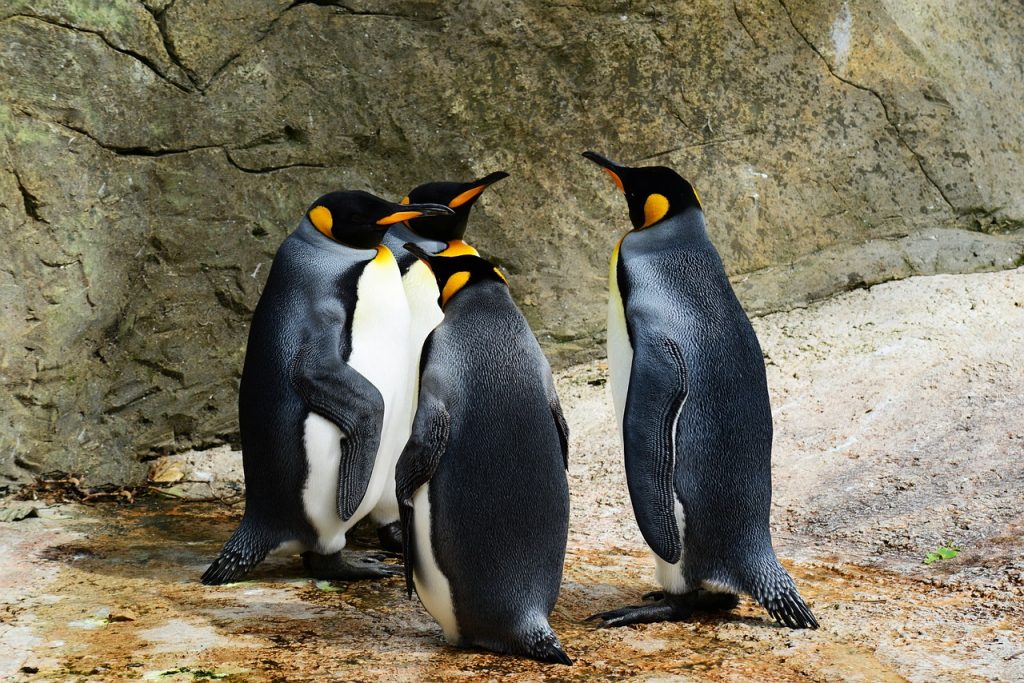Changing climate means king penguin must move or face major population decline

March 5th, 2018
Over 70 per cent of world`s king penguin population may have to leave their habitats in a matter of decades due to global warming.
As a consequence of our changing climate, their main source of food is drifting away from their breeding places, forcing the penguins to travel further distances to find food.
These are the conclusions of a new study published in Nature Climate Change conducted by a team of researchers from Europe, Africa, and North America.
To form a colony and breed, king penguins require tolerable temperatures for the entire year and will only breed on islands that are ice free. Most importantly, they require an abundant source of food that is close to their chicks.
Traditionally, king penguins have relied on the vast amount of fish located on the Antarctic Polar Front in the Southern Ocean, an area where cold deep water and warmer water meet.
King penguins obtain roughly 80 percent of their nutrition from the Antarctic Polar Front, according to Emiliano Trucchi, one of the paper`s authors.
However, as global warming increases, this location is moving further away and getting closer to the South Pole. Thus, the parents have to swim longer distances to find food, while their chicks remain waiting on the shore, fasting for long periods of time.

King Penguins Photo: PollyDot
As a result, the study predicts that the duration of the parent`s trips to gather food will surpass the resistance of their children, leading to massive decreases in their population size, or to their reallocation.
But this wouldn`t be the first-time king penguins had to deal with such crisis. By accessing the penguin`s genome, the researchers found that they have already traveled long distances and mated outside their colonies, due to past climate changes.
“King penguins seem to be able to move around quite a lot to find the safest breeding locations when things turn grim”, added Mr Trucchi.
However, the major difference this time is the fact that human activities are causing fast and irreversible changes on the planet, the study finds.
Apart from the impacts caused by climate change in Polar Regions, the Southern Ocean is also a target of industrial fishing, which creates further difficulties for penguins in their search for food.
“There are still some islands further south where King penguins may retreat,” said one of the researchers, Dr Celine Le Bohec.
“But the competition for breeding sites and for food will be harsh, especially with the other penguin species like the Chinstrap, Gentoo or Adélie penguins, even without the fisheries,” she added.
“It is difficult to predict the outcome, but there will surely be losses on the way. If we want to save anything, proactive and efficient conservation efforts but, above all, coordinated global action against global warming should start now.”
[x_author title=”About the Author”]







